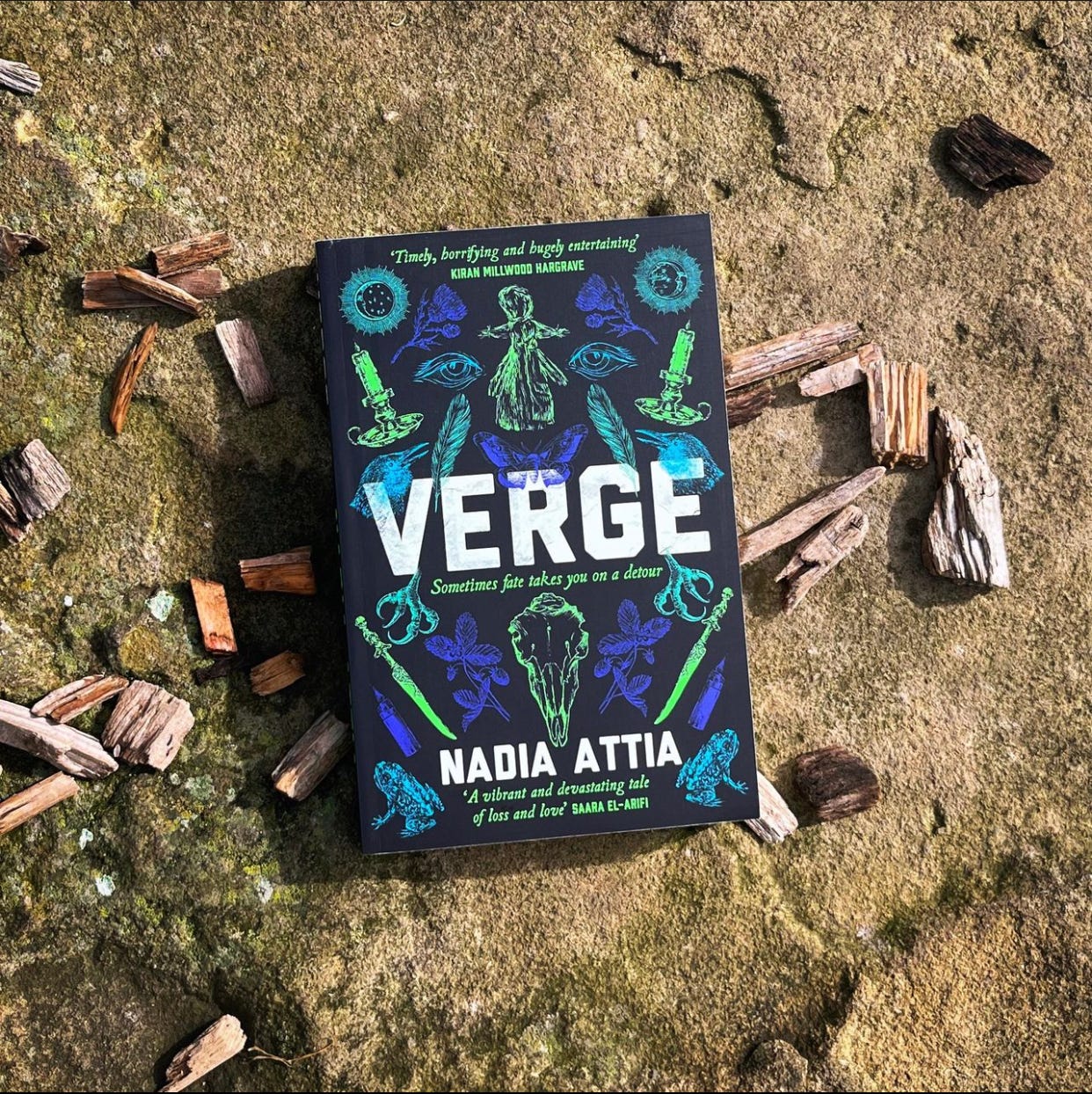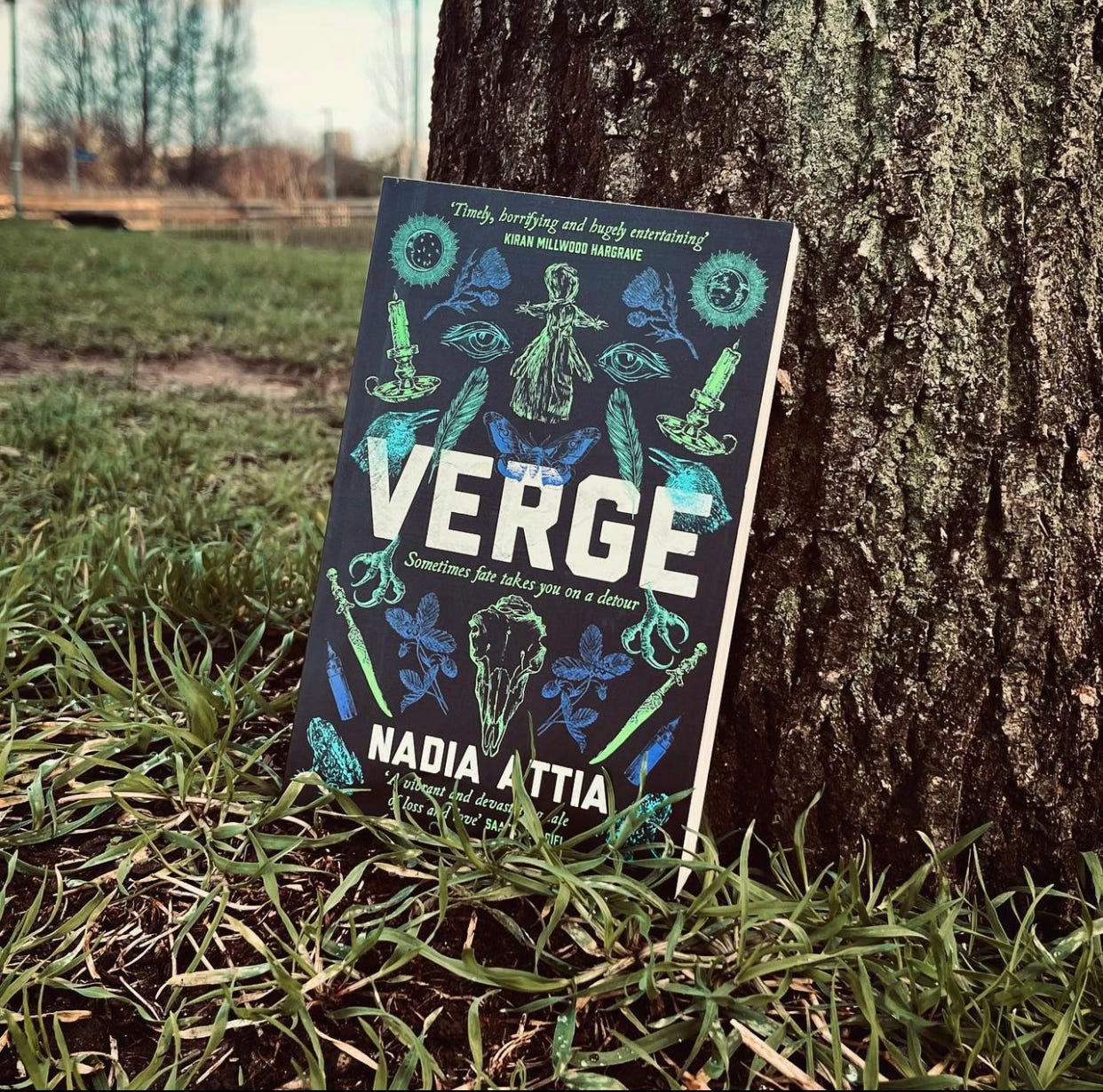WW BOOK CULT: Verge by Nadia Attia
A fast-paced folkloric road trip through a dystopian Britain, Nadia Attia’s debut novel is the perfect addition to our book cult.
Rebellious teenager Rowena is cursed – marked by Death since birth. When Rowena’s boyfriend and father die in quick succession her mother sends her North to her gran, the one healer strong enough to lift the curse before her eighteenth birthday.
Halim is proud, independent and just a few payments away from owning his truck. Unfortunately, his latest cargo is Rowena. Every gun-patrolled, hard county border they cross poses a threat to his future, as do Rowena’s increasingly dark visions.
Their journey takes them across a disunited kingdom where folk marry the old ways of spells and superstition with reawakened prejudices. Can Rowena and Halim overcome their differences and forge an alliance in order to survive?
We caught up with Nadia to find out about the inspiration for the novel…
WEIRD WALK: Your story takes place in a dystopian vision of Britain, where county borders are tightly patrolled and many people are scratching out a rural living. How did you arrive at this setting for the novel?
NADIA ATTIA: I was angered and saddened by Brexit and the hardship, division and bitterness that it sowed in society, so it was easy imagine an alternative Britain where things were pushed to an extreme (worryingly, it doesn’t seem that far away). I started writing Verge in 2019, it was released in May 2023, and it remained prescient in its depiction of border control, the climate crisis and the growing disparity in wealth; now heightened by a cost-of-living crisis and a post-pandemic appreciation of nature.
Folklore and customs run through Verge. What was your process for researching the traditions that you draw upon in the book? Do any real-life customs stand out as an inspiration for those in the novel?
The internet was a rabbit hole I happily dove into and I discovered some great rituals, traditions and beliefs. I also found inspiration in books such as The Wicked Shall Decay (AC Mercer), A Treasury of British Folklore (Dee Dee Chainey) and The New Penguin Book of English Folk Songs (Steve Roud, Julia Bishop), and I attended online talks from places like Treadwell’s and The Last Tuesday Society. I actually plotted the narrative around key festivities such as Beltane and then added flourishes of weirdness from Beating the Bounds to things like The Society of the Horseman’s Word, which was too enigmatic to not include. Some traditions make a lot of sense from a practical standpoint – imparting information, warnings, being thankful – but others were just pure imagination fodder.
There’s a sense of ecosystems recovering amid the decline of human society in Verge and your character Rowena has a real connection to nature. Is the natural world something that has always interested you? Are you optimistic about the future for nature in the UK?
When I was a kid we’d go for walks, picnics or litter-picking in the meadows, or I’d play in the overgrown ‘wilderness’ behind the estate; I don’t think I can write anything without imbuing it with my awe and respect for the natural world. As for the future of it – it’ll be growing over our bones and reclaiming the land as soon as we’ve burned ourselves out. I am hopeful to see many more voices speaking up for our rivers, trees and unique habitats, though, and fighting for our access to it. The fact that the cutting down of a tree made headline news is testament to our universal awakening to the preciousness of the natural world.
Your characters explore lots of different locations on their journey, and the landscape features heavily in the story. Do you have a favourite part of the UK to walk in yourself, and are there landscapes that were particularly influential for the settings we encounter in the book?
I grew up in Hampshire so I have a soft spot for those meadows and chalk streams, but, in contrast, I also love the rugged – slightly intimidating – Scottish landscapes. I did a Britain Trip with my girlfriends years ago and I still remember the quiet green magic of Wistman’s Wood and the sacred wells of Cornwall.
What do you have planned for your writing in the future? Do you think you will continue to explore the themes found in Verge?
My work-in-progress novel is rural-set and still has a sense of hedonism, suspicion and natural mysticism, but this one is set in 1901 and involves salons, séances, misplaced desire and a Hardy-esque climax! I’m drawn to characters who sit outside of ‘polite society’ and try to forge their own path, despite those who try to keep them down.







I’ve just ordered a copy and verily looking forward to reading it!
Can't wait to read!